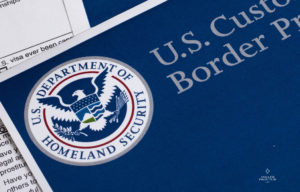News & Insights
U.S. Export Restrictions on Huawei: Timeline of Events and Latest Updates
Many questions have been swirling around as of late as to the current status of U.S. export restrictions on Huawei following President Trump’s comments at the G-20 summit. The following provides a timeline of events and an update on the latest developments involving the U.S. export restrictions on Huawei and its affiliates. Briefly, as discussed in greater detail below, Huawei remains on the Entity List and all U.S. person activities that do not fall within the four specified categories of the BIS’ Temporary General License trigger export licensing requirements.
| February 2018: The FBI informed the U.S. Senate Intelligence Committee that it was concerned about the risks posed by Huawei and ZTE—specifically, that they could compromise the U.S. telecom infrastructure, steal data and engage in acts of espionage. In addition, the U.S. Department of Defense banned the sale of Huawei and ZTE phones on all U.S. military bases. |
| July 2018: Australia banned Huawei from its planned 5G rollout after its intelligence agencies warned that the Company may be forced to give data to China. |
| December 2018: Japan followed suit in December 2018 by banning government procurement of Huawei and ZTE equipment amidst security fears. Later that month, the Chief Financial Officer of Huawei was arrested in Canada for alleged violations of the U.S. sanctions on Iran. |
| February 2019: The U.S. State Department warned that countries using Huawei technology pose a risk to the United States. |
| April 2019: The CIA allegedly warned Australia, Canada, New Zealand and Australia that Huawei receives funding from the People’s Liberation Army, China’s National Security Commission, and China’s intelligence network. |
| May 15, 2019: President Trump issued an Executive Order (“Securing the Information and Communications Technology and Services Supply Chain”) under the International Emergency Economic Powers Act that prohibits or triggers licensing requirements on U.S. persons’ acquisition, import, transfer, installation, or use of information and communications technology or services that were “designed, developed, manufactured or supplied” by a foreign adversary if the Secretary of Commerce finds that there is an unacceptable risk to U.S. national security. The Commerce Department has 150 days from the date of the Executive Order to issue regulations implementing the order. |
| May 16, 2019: The Commerce Department’s Bureau of Industry and Security (“BIS”) added Huawei Technologies Co., Ltd. (“Huawei”) and 68 of its non-U.S. affiliates, to the Entity List. As a result, U.S. companies are prohibited from exporting, reexporting or transferring (in-country) any item that is subject to the Export Administration Regulations (EAR) to them without a license, and applications for such licenses will be denied. Even items that are classified as EAR99 or otherwise eligible for an EAR license exception are prohibited from being exported to an Entity List party without a license from the BIS. |
| May 20, 2019: The BIS granted a 90-day reprieve in the form of a Temporary General License which authorizes, until August 19, 2019, certain exports, reexports and in-country transfers to the Huawei companies that were added to the Entity List provided that those activities fall within four (4) specified categories. Where a proposed transaction involving Huawei is authorized by the BIS’ Temporary General License, companies are required to issue written certifications describing how that particular transaction qualifies for, and falls within the scope of, the Temporary General License. |
| June 27, 2019: At the G-20 Summit in Japan, President Trump announced that U.S. export restrictions on Huawei would be lifted, but noted that he would hold off on any decisions until the end of the trade negotiations with China. |
| July 9, 2019: Secretary of Commerce Wilbur Ross announced at the BIS’ Annual Conference on Export Controls that the Huawei companies would remain on the Entity List; however, more export licenses would be approved and that applications will be reviewed for national security concerns. |
| July 16, 2019: Bipartisan legislation (“The Defending America’s 5G Future Act”) was introduced by Senators Marco Rubio, Tom Cotton, Chris Van Hollen, Mark Warner, Richard Blumenthal and Mitt Romney that would prevent the Trump Administration from relaxing current export restrictions on Huawei without approval from Congress. The law would also prevent the BIS from removing Huawei from the Entity List without an act of Congress, give Congress the authority to disallow waivers granted to companies seeking to engage in business with Huawei, and codify the May 15th Executive Order. A companion bill was also introduced in the House. |
Both U.S. and non-U.S. companies whose supply chains have involved Huawei or its affiliates are urged to continue monitoring this situation closely, especially keeping tabs on whether the Temporary General License will be extended beyond August 19th, and whether the proposed bill introduced in Congress this month will move forward.
If you have any questions pertaining to Huawei’s inclusion on the Entity List, export controls or other international trade issues, please contact Melissa Proctor (melissa@millerproctorlaw.com) at Miller Proctor Law PLLC (https://millerproctorlaw.com ).
News & Insights

CBP Consider 56 Comments Submitted In Response To Proposed Amendments To The Customs Brokers Regulations
CBP recently closed the comment period on its proposed changes to the customs brokers regulations in 19 CFR Part 111. A total of fifty-six (56) comments were submitted—most were concerned with ambiguity in the proposed regulatory language, while others suggested

New Lacey Act De Minimis Exemption Will Take Effect on April 1st
On April 1, 2020, the U.S. Animal and Plant Health Inspection Service (APHIS) will begin exempting U.S. importers from the Lacey Act import declaration requirement for products containing de minimis levels of plant material content. The exemption was announced in


